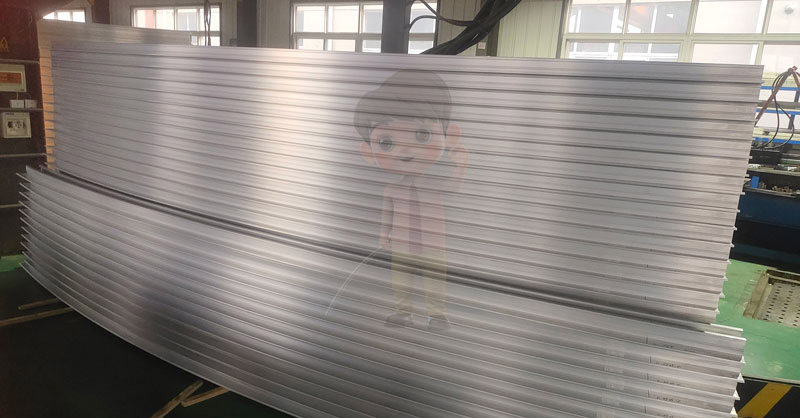Future Trends in Profile Bending: Sustainability and Eco-Friendly Practices
As industries around the world increasingly prioritize sustainability, profile bending—a critical process in metal fabrication—stands at the forefront of this transformation. Shengda Weiye Bending Company explores the future trends in profile bending, focusing on sustainability and eco-friendly practices that are shaping the industry.
Profile bending is the process of shaping metal profiles into specific curves or angles to meet design requirements. It is widely used in various sectors, including construction, automotive, aerospace, and furniture manufacturing. As environmental concerns rise and regulations become stricter, manufacturers are rethinking traditional processes to minimize waste and reduce their carbon footprint.
1.Emphasis on Material Efficiency
One of the key trends in sustainable profile bending is the emphasis on material efficiency. This involves optimizing the use of raw materials during the bending process to reduce waste. Advanced software and simulation tools allow engineers to design bending patterns that maximize the use of material while minimizing scrap. By adopting these practices, companies can not only lower costs but also significantly reduce their environmental impact.
2.Recycling and Reusing Materials
Another significant trend is the use of recycled materials in profile bending. As the demand for sustainable practices grows, many manufacturers are sourcing metals from recycled materials. This not only conserves natural resources but also reduces energy consumption associated with the extraction and processing of virgin materials. Companies are increasingly investing in technologies that allow for the efficient recycling of scrap metal generated during the bending process.

3.Adoption of Eco-Friendly Coatings and Finishes
In addition to the bending process itself, the finishing touches applied to bent profiles are also evolving. Traditional coatings often contain harmful chemicals that can be detrimental to the environment. However, there is a growing trend towards using eco-friendly coatings that are less toxic and more sustainable. These coatings not only protect the metal from corrosion but are also designed to be biodegradable or recyclable, further enhancing the sustainability of the final product.
4.Energy-Efficient Machinery
The machinery used in profile bending is becoming increasingly energy-efficient. New technologies, such as electric bending machines, consume less energy compared to their hydraulic counterparts. These machines also offer greater precision and control, resulting in less material waste. As manufacturers invest in modern, energy-efficient equipment, they can significantly reduce their operational carbon footprint while improving productivity.
5.Digitalization and Smart Manufacturing
The future of profile bending is also being shaped by digitalization and smart manufacturing technologies. The integration of IoT (Internet of Things) devices and data analytics allows for real-time monitoring and optimization of the bending process. By analyzing data on energy consumption, material usage, and production efficiency, manufacturers can identify areas for improvement and implement changes that enhance sustainability.
6.Circular Economy Initiatives
The concept of a circular economy is gaining traction in the profile bending industry. This approach focuses on designing products with their entire lifecycle in mind, from production to disposal. Manufacturers are exploring ways to create products that can be easily disassembled and recycled at the end of their life, thereby reducing waste and promoting the continual use of materials. This shift not only benefits the environment but can also lead to new business opportunities and revenue streams.
As the profile bending industry looks to the future, sustainability and eco-friendly practices will play a crucial role in shaping its evolution. By focusing on material efficiency, recycling, eco-friendly coatings, energy-efficient machinery, digitalization, and circular economy initiatives, manufacturers can meet the growing demand for sustainable solutions. Embracing these trends will not only help companies reduce their environmental impact but also position them as leaders in a rapidly changing market. The future of profile bending is bright, with the potential to create innovative products that are both high-quality and environmentally responsible.
30
2025-06
Number of visitors:1
HOT NEWS
-
Precision Hot Bending Solutions for Custom Metal Profiles
2026-02-13
-
Concentric frequency with growth: Sheng Dara bend to build a shared happiness
2026-02-04
-
Precision and Efficiency in Plastic Steel Bending: Key Techniques and Benefits
2026-01-26
-
High-Precision C-Channel Steel Bending Solutions for Customized Structural and Architectural Applications
2026-01-16




 English
English Chinese
Chinese Japan
Japan German
German

 LIST
LIST
